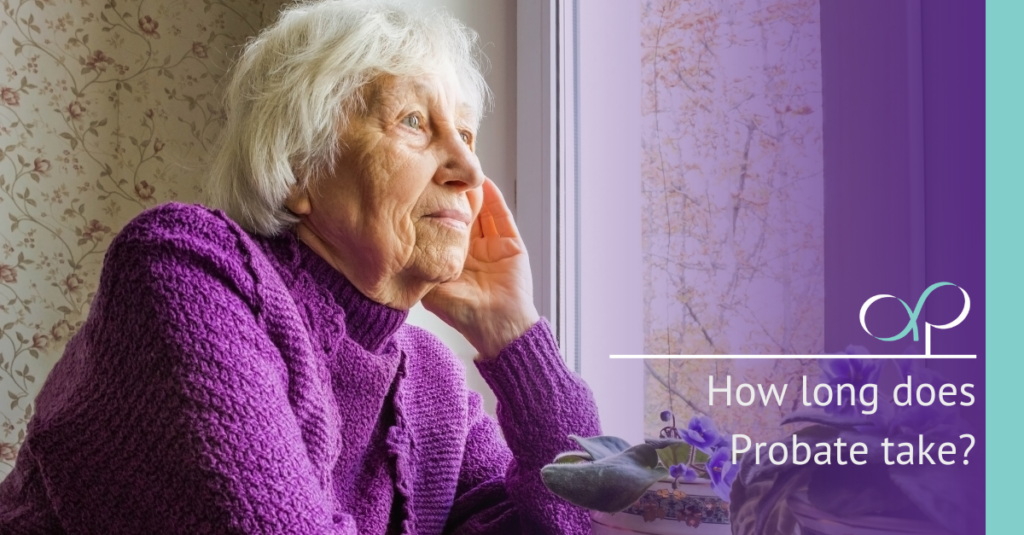The process of applying for probate can be frustrating and time consuming, add to that the possible consequences of getting it wrong there is no wonder many smart people rely on lawyers to do the job for them.
One of the questions early on in the process and one that is asked most often is how long does probate take. Well, it depends on what is you mean by probate.
Probate is often referred to as the time taken from the date a person dies to the time the assets and money is transferred to the beneficiaries. This is in fact not Probate but is, legally speaking, the period of administration of the estate. Probate is, legally, the order produced by the court confirming that a person’s Will is valid and, confirming the names of the executors who are legally entitled to administer the estate.
So to answer the question, how long does probate take? In traditional lawyer fashion this is a difficult question to answer as it depends on the complexity of the case.
What factors are important?
It is necessary to have a complete picture of the deceased persons finances before probate can be applied for. That means tracing and valuing their land, property, personal items and shares as well as obtaining the date of death balances (with interest)of any bank accounts and details of any money due under insurance policies. If a persons finances are simple then probate can be applied for in a matter of weeks and the probate court, provided there is no tax to pay should grant the probate within 16 weeks of the application being made.
If a person’s finances are more complicated then it will likely take more time to value the estate and make the application to the probate court.
If there is inherit a tax to pay, then a full report of the assets and their values will need to be made to HMRC and inheritance tax paid before an application for probate can be made. HMRC currently aim to issue a receipt for tax paid within 21 days of payment, although this does not mean that they have accepted the figures supplied by the executors it does mean that probate can be applied for whilst they consider the report made to them. When the executors have the receipt then probate can be applied for and the 16 week time period mentioned above will then start.
There are only a few reasons why probate will be expedited, the most common one is a need for a quick probate, when a person dies during the process of selling their house. In these cases the probate court, if provided with proof that the sale was underway prior the death, will prioritise the case and probate will be granted more quickly than the usual 8 week period. It is worth noting though that the application must be accurate and not raise any questions from the courts point of view or it will not proceed quickly and the sale could be in jeopardy.
Many executors market a property after a death before probate has been granted. Whilst this is legally acceptable, it is not possible to exchange contracts before Probate has been granted. If a sale is agreed after a death the probate court will not expedite the probate and therefore the potential sale may fall through. If you are in the position of marketing a property before probate is granted then it is important to be open and honest with the potential buyer regarding the probate process so that they can plan for the time it will take to complete the sale. It is often quicker and more straightforward for a lawyer to make the application on behalf of executors as they are used to the process and although the process is the same for lawyers and non lawyers alike, due to their experience of the HMRC and court processes lawyers applications are less likely to raise questions and therefore can result in probate being granted much quicker by the probate court.

